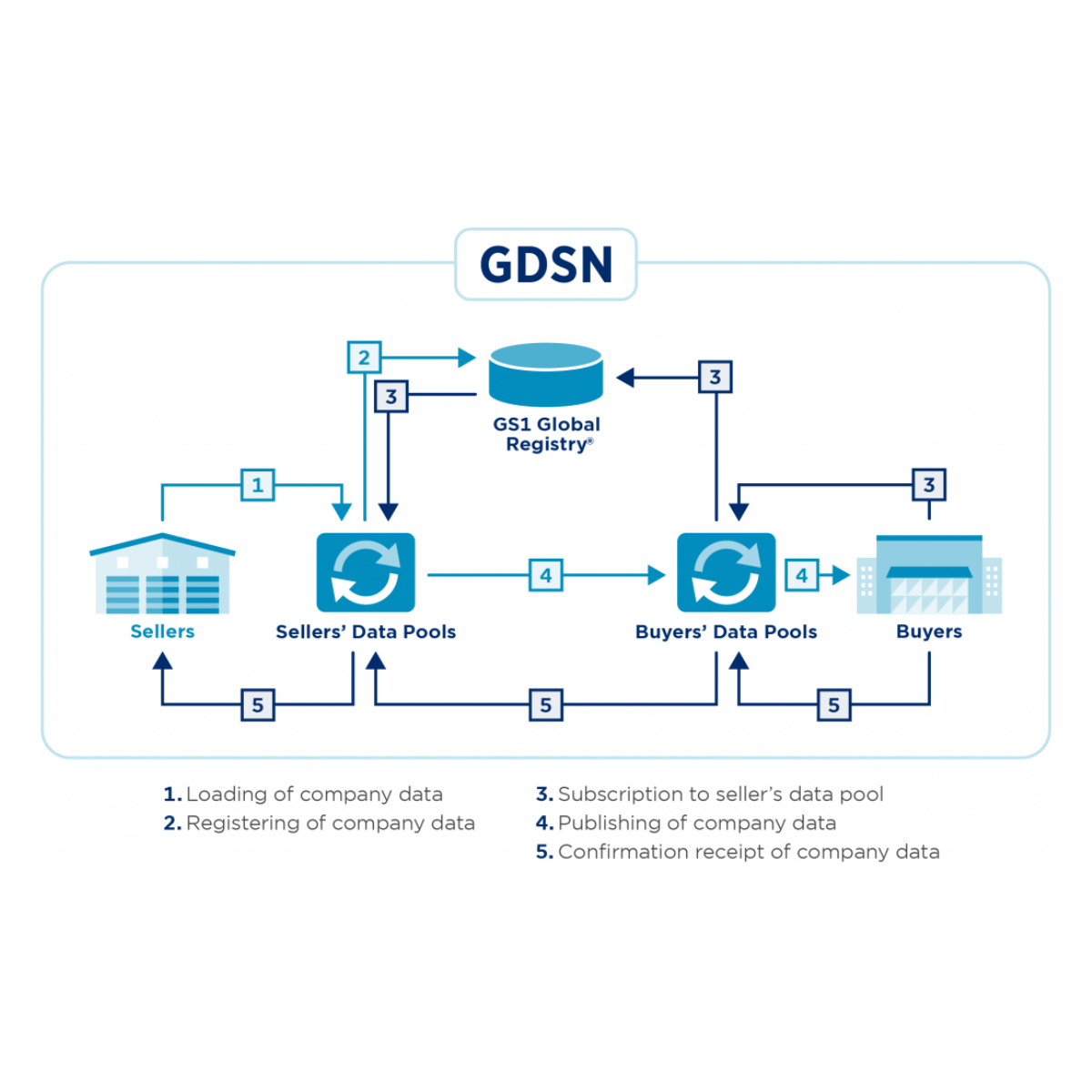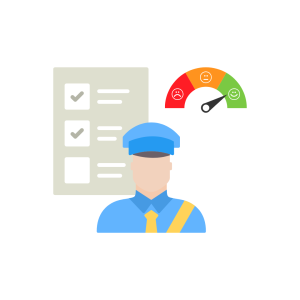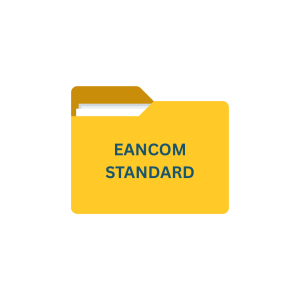Introduction
Define GDSN
The Global Data Synchronization Network (GDSN) is a global standard for exchanging product data between manufacturers, distributors, and retailers. GDSN ensures that all parties have access to accurate, up-to-date product information, which is critical for maintaining data integrity, streamlining supply chain operations, and ensuring compliance with industry regulations.
Over the next few years, retailers requiring their suppliers to provide GDSN-compliant data will be growing exponentially. The major players in U.S. retail are already mandating it, and it’s just a matter of time before it works its way through the system to include every national and regional chain in Canada and the U.S.
If you’re a supplier that is currently selling to a national or regional chain, or if you have plans to start shortly, it’s in your best long-term interest to start laying the groundwork to provide GDSN-compliant product data. Here are a few tips on selecting a GDSN-certified data pool provider and ensuring that your transition to this new industry standard goes smoothly.
Key Takeaways
- GDSN (Global Data Synchronization Network) enables efficient and accurate sharing of product data across trading partners.
- Successful GDSN implementation enhances data accuracy, regulatory compliance, and supply chain visibility.
- Key steps include preparing your data, choosing the right data pool provider, and ensuring internal systems are ready for synchronization.
- Benefits include improved product listing accuracy, reduced errors, and faster market entry.
- Investing in GDSN datapool can future-proof businesses for growing digital requirements in the supply chain.
4 Step Process to Get Started With GDSN
1. Choosing Your GDSN Provider
For buyers and sellers just entering the world of GDSN, the most important factor in deciding which provider to utilize is that you do not have to use the same GS1-certified GDSN provider as your trading partners. By definition, all GDSN-certified data pool providers can seamlessly interact and exchange data with one another.
That opens up the field considerably. Although there are only a handful of GDSN-compliant solution providers operating in North America right now, the number is expected to grow significantly over the next few years, and with it will come a wide variety of fee structures, solution options, and service levels. These are the elements you should be focusing on.
2. GDSN Pricing
Compare competing pricing plans – upfront sign-up cost, usage fees, and annual maintenance charges. You’ll be surprised at how many ways there are to pay for services that essentially have the same result! Choose a plan that best suits your business needs based on your product line, and plans. A quality GDSN provider will act as a consultant, helping you to make the right decisions for your company’s implementation.
3. Comprehensive GDSN Solutions
Consider the GDSN solutions offered by a provider. Does their product offering meet all your needs or will you be forced to bring in other partners to achieve your goals? Are they targeting their platform toward large multinational traders or the SME market? Is it industry-specific or adaptable to wider uses? Does their GDSN solution need to be integrated into your existing IT infrastructure or is it hosted remotely and accessed through a PC via the internet? What kind of reporting options do they offer? Have they invested in developing and updating their proprietary platform or are they reselling another company’s?
Lastly, as with any company you’re considering doing business with, investigate their operations. Ask to speak to current clients to learn about their experiences with set-up and training, ongoing customer service support, and continuous improvements to the application.
4. GDSN Implementation
Of course, deciding on a GDSN-compliant provider is just the beginning. Now it’s time to make any necessary adjustments to your current methods of managing product data, integrate the new GDSN platform into your daily business, and establish the data pipeline with your trading partner.
The best GDSN providers view themselves as true business partners and will be with you every step of the way here. Their expertise will prove invaluable in preparing a comprehensive project plan that explains every step of the process, allocates responsibilities, and outlines expected completion dates from the first training session right through to the final item synchronization. Also, look for a GDSN solution partner that assigns dedicated support staff to each project. There’s nothing better than being on a first-name basis with the resources that are helping you prepare your business for the next chapter in its success!
GDSN’s advantages in efficiency, cost-savings, and customer service are well documented at GS1 Website, the website of the non-profit organization that defines and maintains international GDSN standards.
Want to learn more?
Here is the in-depth GDSN guide
Expert Opinions
Implementing GDSN is a game-changer for companies looking to enhance data accuracy and streamline their supply chain operations,” says Dan Zablet, GDSN Solution Expert at Commport Communications
According to a recent survey by GS1 USA, businesses that implemented GDSN reported a 25% reduction in data errors and a 30% increase in operational efficiency.
Conclusion
Implementing GDSN is a strategic move for businesses looking to enhance data accuracy, streamline supply chain processes, and foster collaboration with trading partners. Understanding the key considerations and addressing common questions surrounding GDSN implementation is crucial for a successful integration. As you navigate this transformative journey, prioritize thorough research, collaboration with experienced GDSN providers, and a commitment to aligning your data synchronization initiatives with your overall business goals.
Book a Free Demo
Download: GDSN Buyers Guide
Empower your business with global data synchronization; download our GDSN Buyer's Guide today and take the first step towards streamlined, accurate, and compliant product data management.
Frequently Asked Questions
GDSN, or Global Data Synchronization Network, is a network that enables the standardized exchange of product data between trading partners in real-time. It is crucial for businesses as it ensures accurate and consistent product information across the supply chain, reducing errors, improving efficiency, and enhancing collaboration.
GDSN integration significantly improves data quality by providing a centralized, standardized platform for sharing accurate and up-to-date product information. This reduces data discrepancies, errors, and ensures that all stakeholders have access to reliable information for informed decision-making.
Common challenges include data alignment, system integration, and compliance with GDSN standards. These can be mitigated through thorough planning, collaboration with experienced GDSN providers, and ongoing communication with trading partners to ensure a smooth transition
GDSN implementation is beneficial for businesses of all sizes. While larger enterprises may have more extensive product data, small businesses can leverage GDSN to improve data accuracy, enhance visibility, and streamline processes, contributing to overall efficiency and competitiveness.
GDSN facilitates compliance by adhering to global data standards and regulations. Implementing GDSN ensures that product information aligns with industry standards and regulatory requirements, reducing the risk of non-compliance and fostering a more transparent and compliant supply chain.





